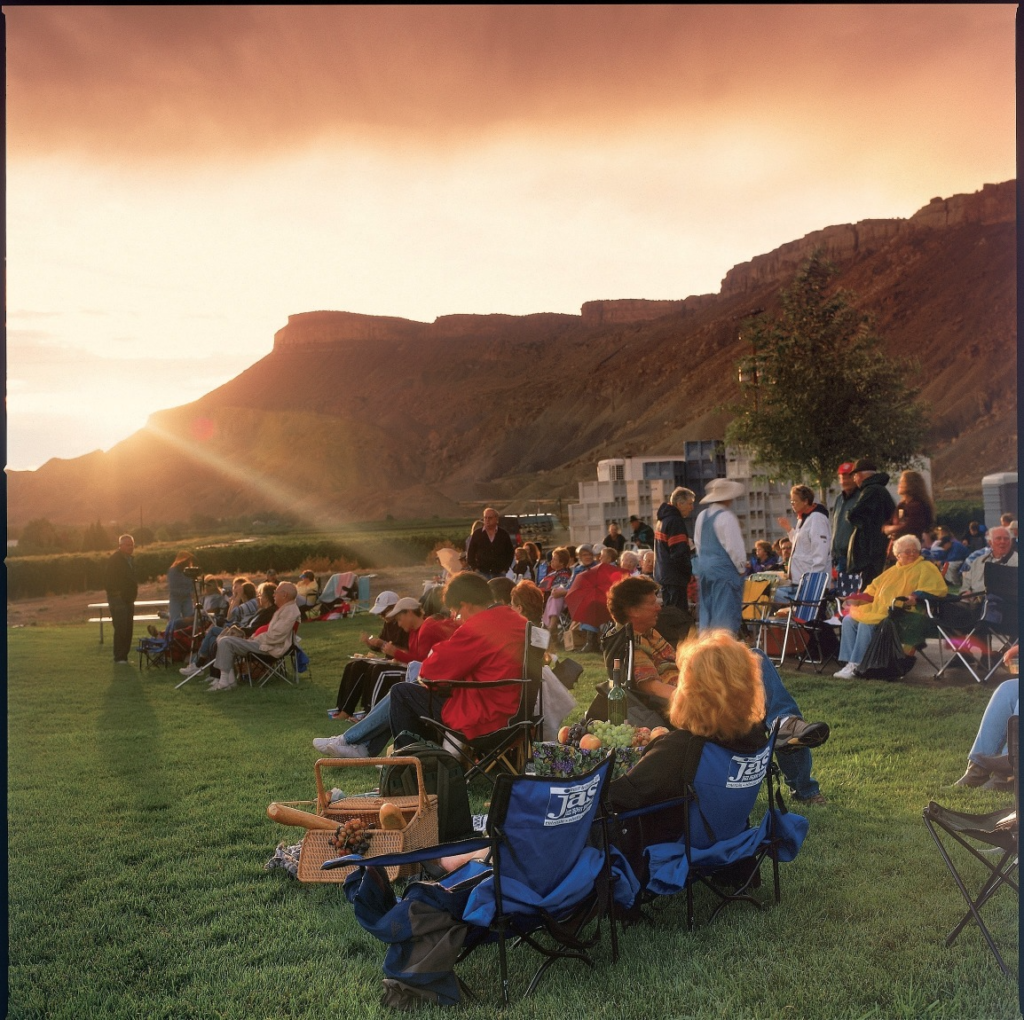
It was 2016, and David Foster was looking for a change. He felt Davis, California, had grown too crowded for his taste and didn’t offer enough easy access to the outdoors. So he and his wife, Meghan, went searching. They visited Kalispell, Nashville, Fort Collins — none seemed to fit. It wasn’t until they stopped on Colorado’s Western Slope that the Fosters unexpectedly found their next home.
Over a few days spent with Meghan’s family in Grand Junction, the Fosters fell in love with the town of 62,000. They hiked to the red rock spires of Colorado National Monument, kayaked where the Colorado and Gunnison rivers meet in the heart of town (hence its name), and learned there was great fishing atop the nearby Grand Mesa. “We didn’t know how much easy access there was to so many things,” Foster said.
Foster recounts this odyssey from a stool in Kiln, the thriving coffee shop he opened two years ago on Grand Junction’s Main Street. The shop has a sleek, modern look that sets it apart from many downtown businesses. On any given day, the patrons range from millennials in skinny jeans and yoga pants to groups of men who troop in from energy company offices. In many ways, Foster and his business represent the changing face of Grand Junction. And the newcomers haven’t just come to play — they’re slowly reshaping Grand Junction’s politics and economy.
Initially, the Grand Junction area looked to Foster like not much more than a patch of rural desert. It was a place worn down from decades of booms and busts, the result of a reliance on drilling for oil and gas. Even today, the city lags behind the rest of Colorado in wages, education levels, and employment. It has higher-than-average rates of suicide, obesity, homelessness, and child abuse.The leftover mess of uranium refining and sugar beet processing trashed the riverfront, earning the city its “Grand Junktown” nickname.
But change is afoot. Colorado Mesa is the fastest growing university in the state, and new residents find less traffic and cheaper housing than what’s to be had in the West’s larger cities. The once-trashed riverfront will soon be a park with recreational, residential, and commercial sectors.
Those attracted by the changes are sinking roots. Foster has created a network of like-minded businesspeople, including the owners of other coffee shops, a tattoo salon, clothing stores, a yoga studio, and a co-working space. They help each other with promotions, social-media marketing, and seed money: Foster recently gave $2,700 to two young bakers who hope to open a shop downtown.
Their influence is more than economic. The new, active millennial community got behind a school-funding ballot initiative in 2017 — the first to pass in 13 years in a tax-averse area. (The victory was celebrated over toasts of micro-brew beers in a co-working space.) Foster is mulling ways to play a part in suicide prevention efforts, and to help Grand Junction — where nearly four out of five residents are white — be more welcoming to people of color.
The changes, however, have rankled some. “I was speaking to a group of people recently that was saying, ‘You are going to turn us into another Boulder,'” said Robin Brown, director of the Grand Junction Economic Partnership. “They were not at all happy about that.”
The newcomers are having to make adjustments, too. A lack of trained workers is a gripe for some. “For too long, graduating high-schoolers could walk into oil field jobs with no training and make $80,000 a year,” Brown said. “There was little incentive to learn a trade or go into higher education.”
Others would love to come to Grand Junction, but an influx of coffee shops and yoga studios doesn’t necessarily translate to high-skill, high-wage positions. “A lot of my friends are jealous; they would love to live here,” said Bobby Noyes, who is moving his RockyMounts bike-rack business from Boulder to Grand Junction’s riverfront mixed-use park. “But they can’t. The good-paying jobs are not here yet.”
Regardless, the newcomers have become magnets for other transplants; nearly a dozen of Foster’s friends and family members have already made the move. Three of them work at Kiln. One has applied for a professorship at the university. Another works as a youth pastor. Others may become involved in a new property he recently bid on in hopes of opening another business — a coffee roastery and cafe.
He said they all share a commitment to social betterment, and an affinity for Grand Junction.
“For us, it’s all about community,” Foster explained. “And this is now our community.”
This story first appeared in the Bitterroot newsletter.

